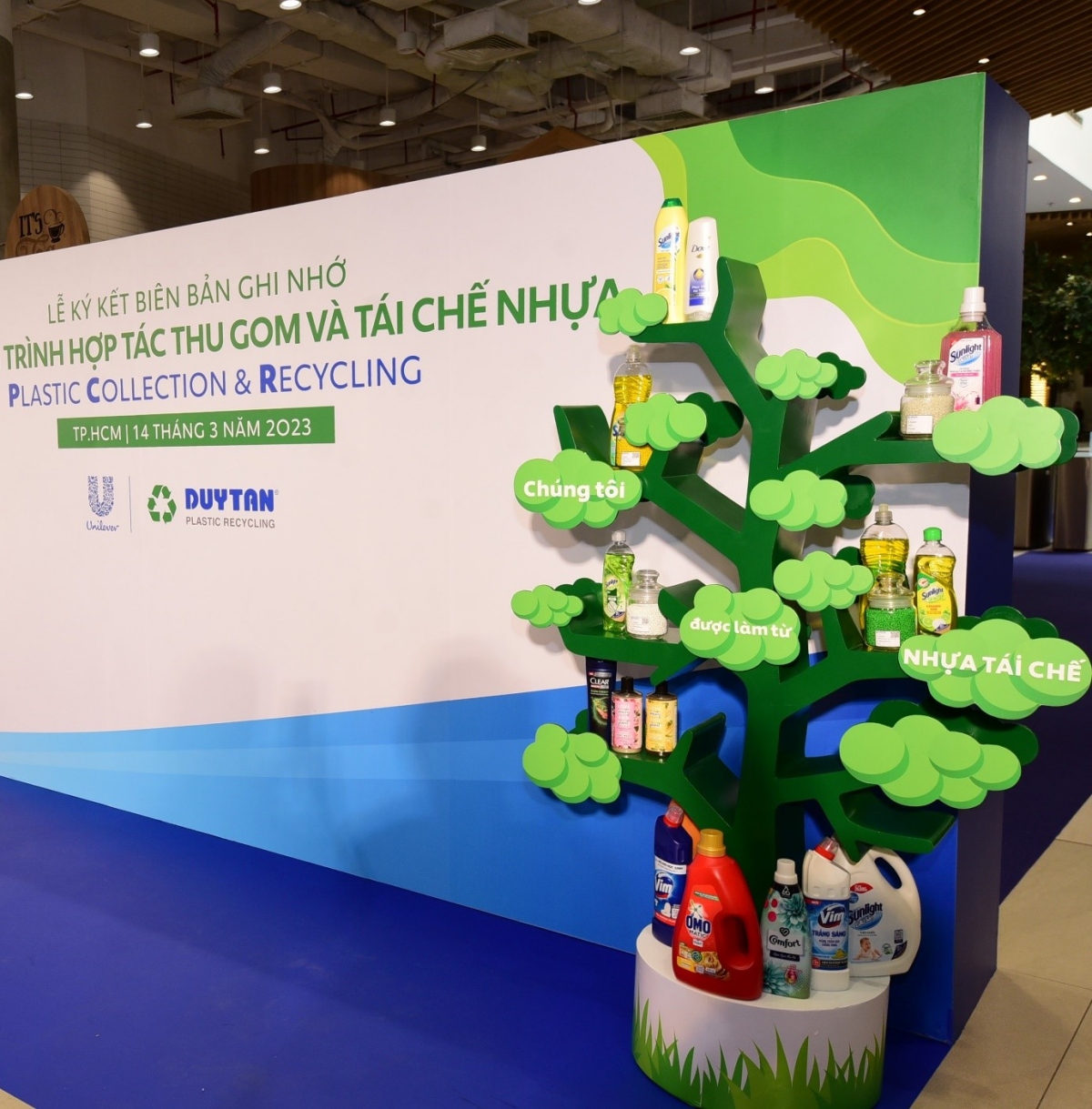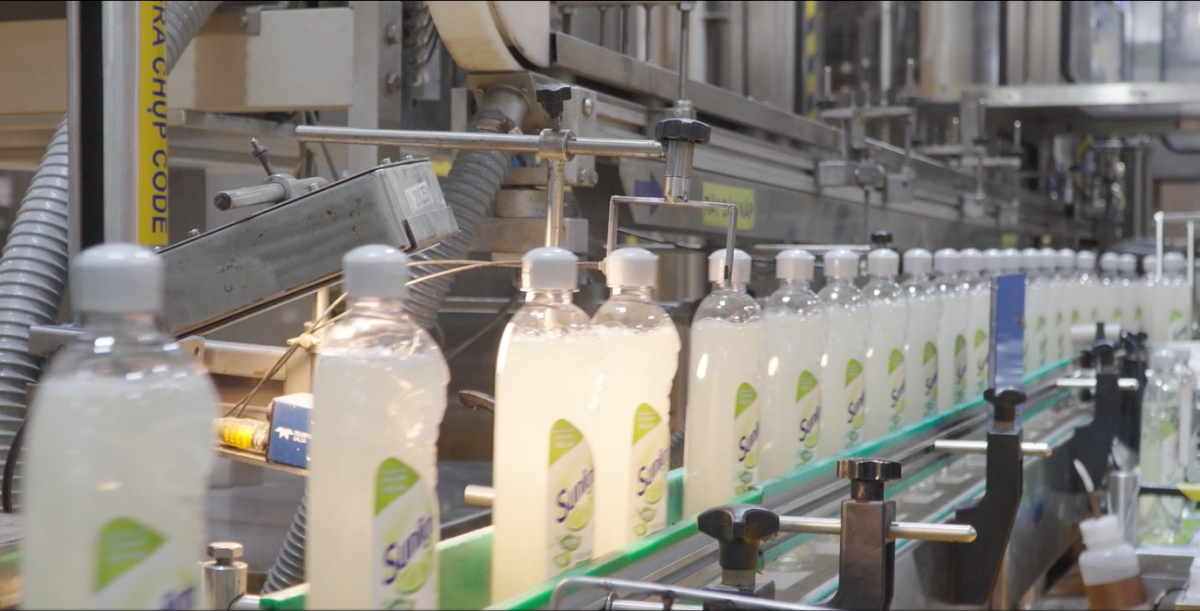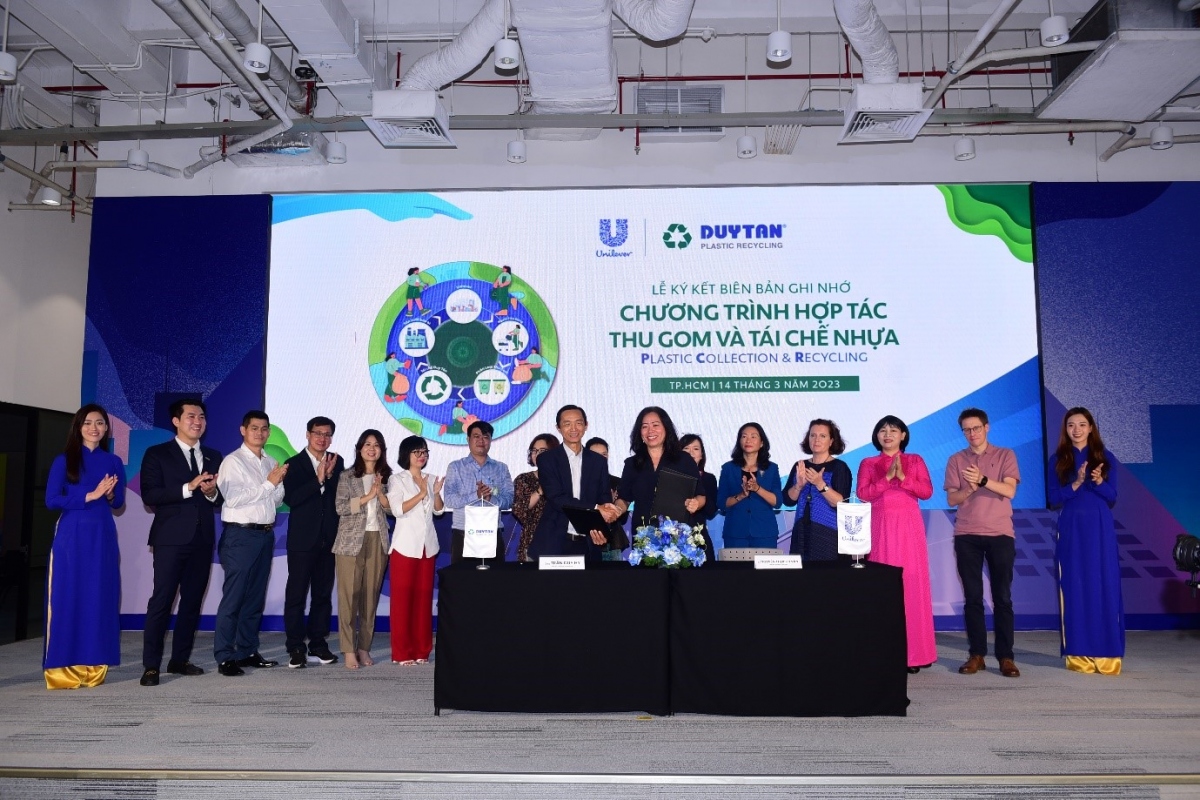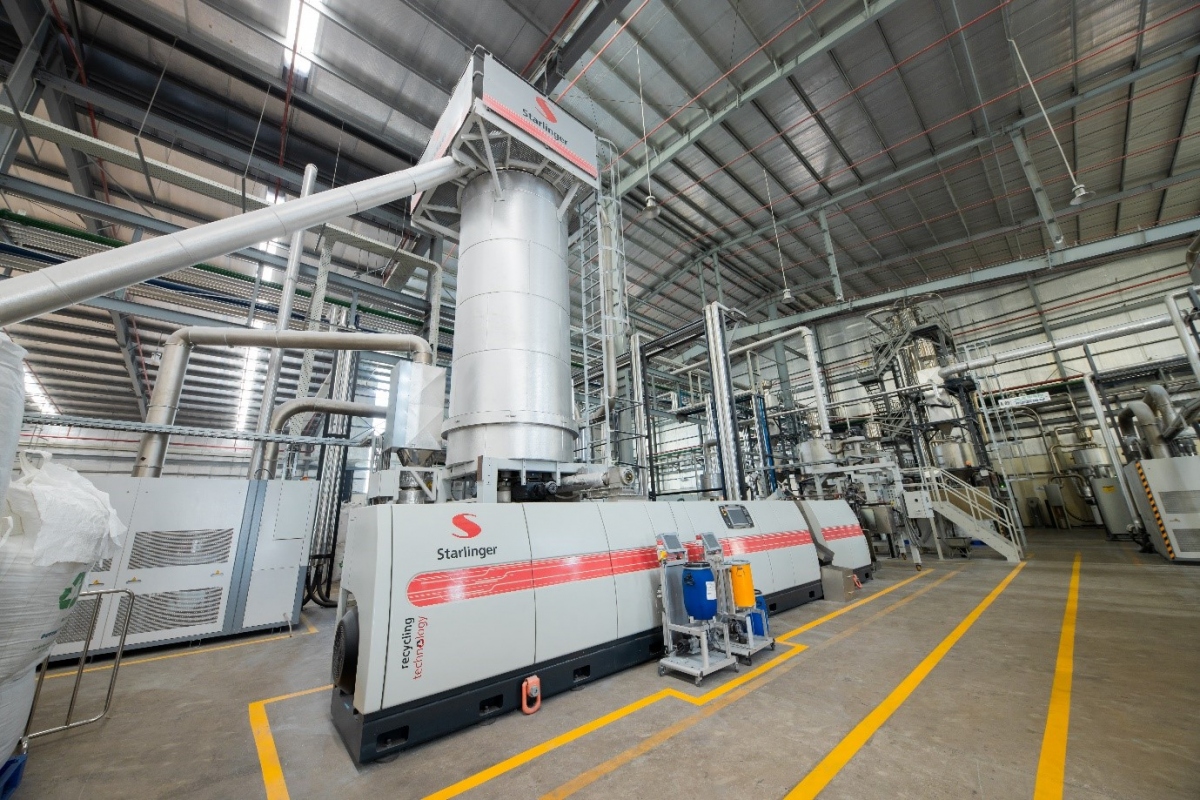Technology to help the recycling industry grow
VOV.VN - In addition to waste sorting and collection infrastructure, technology and innovation play an important role in facilitating the development of recycled plastic packaging, thereby driving the recycling industry and the circular economy.

According to Ellen Macarthur Foundation, by 2040, a circular economy is expected to help reduce the annual volume of plastics discharged to global oceans by 80%, cut greenhouse gas emissions by 25%, generate savings of US$200 billion per year, and create 700,000 net additional jobs.
One of the drivers of this model is plastic waste collection and recycling, which helps to turn plastic waste into a resource for economic activities and keep it out of the environment.
The recycling industry in Vietnam has a diverse but undeveloped source of recyclable materials while the plastic recycling rate is only 33%. Besides a lack of consistency in the plastic waste sorting and collection system, another reason is that the demand for post-consumer recycled plastic (PCR) is not high enough because using virgin plastic is more convenient and cost-efficient.

Transitioning to PCR in packaging production poses certain challenges, which requires businesses to make significant efforts to restore the quality of the already-used plastic to ensure the design, color, shape and quality of PCR plastic packaging.
Another challenge businesses have to tackle is a stable supply of PCR. Meanwhile, the transition to PCR will require a range of new measurement and analytics to be established.
Facing those, technology and innovation are the key to helping Unilever Vietnam solve barriers in promoting the use of recycled plastic in packaging production, contributing to reducing virgin plastic and increasing the life cycle of plastic.
First, applying science and technology helps the business develop the packaging recyclability, so the used packaging is qualified enough for the recycling process later.
Next, technologies often come from improved design innovation which allows the company to design out excess plastic through high-performance and lower weight packaging.
Additionally, the development of new measurements and analytical methods is underpinned by technology to make sure the business can quickly but robustly test all changes to the packaging. This is vital for PCR where quality is hard to achieve and analytical measures are key to ensuring consistent quality.
Besides their own technology, Unilever Vietnam also coordinates and leverages the expertise and technology strengths of their partners in the value chain. And Duy Tan Recycling is an important partner for Unilever’s recycled packaging development.

As a pioneer recycling company in Vietnam, Duy Tan Recycling helps Unilever identify the right solutions for end-to-end recycling while their on-going commitment to build quality at scale allows Unilever to develop plastic programmes across Unilever’s brands. The Duy Tan Recycling plant is currently operating according to International Standards on Quality, Environment, Safety & Health, with a design capacity of churning out up to 100,000 tons per year.
The company is applying the modern technology "Bottles to Bottles" to process and produce recycled plastic particles to ensure physical and chemical conditions for food safety. These plastic particles will be blown into new plastic bottles.
Until now, bottles of Sunlight, Lux and Love Beauty & Planet products have used 100% PCR plastic; several other products have also applied PCR in packaging such as: Dove, Lifebuoy, Sunsilk, Comfort, OMO...

With those strengths, such cooperation will create a great motivation to help complete the circular economy model in plastic waste management that Unilever is aiming for. This also helps inspire other think-alike businesses to increase PCR plastic use in packaging production, and at the same time asks for the Government’s instruction and suport to open up more development opportunities for the recycling industry, which contributes to spreading the circular economy model across the country.

